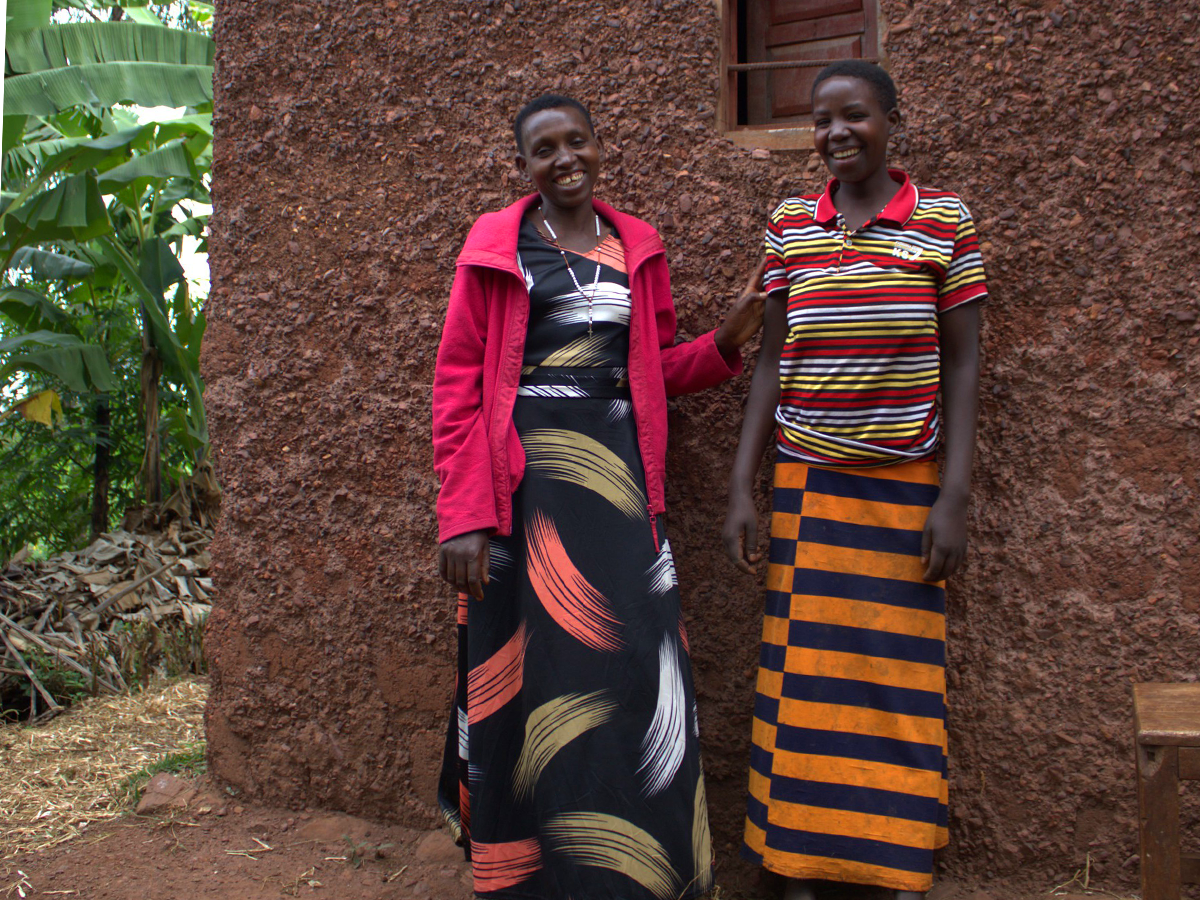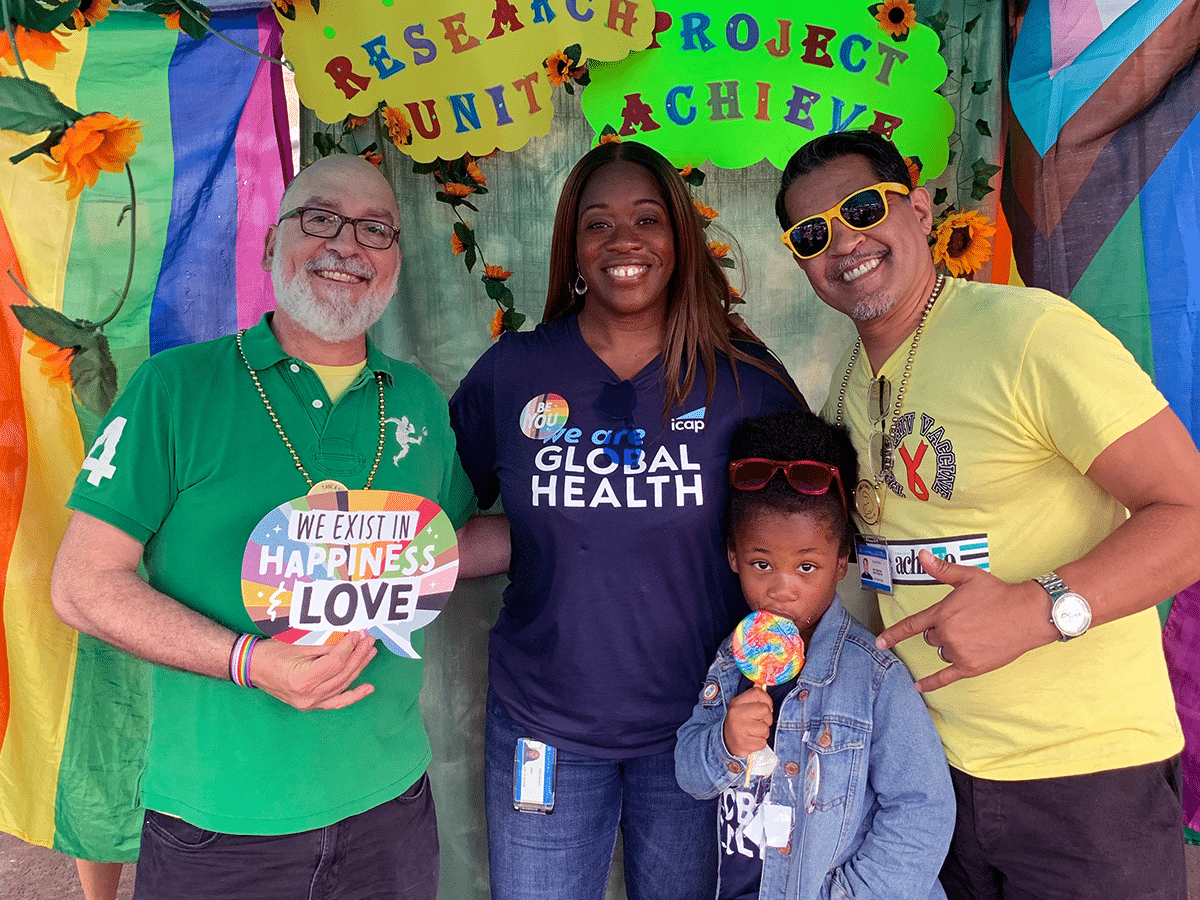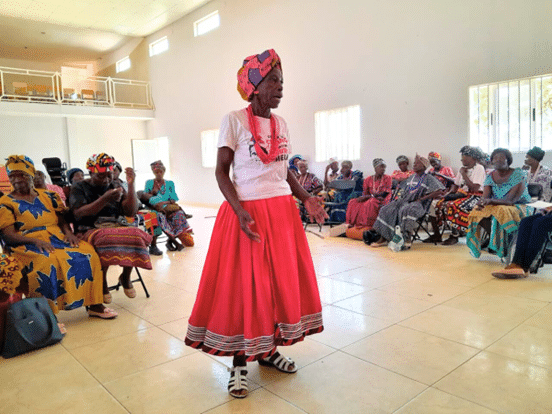Dancile Habarugira, a 37-year-old farmer, recalls the first time she heard of the mentor mother program ICAP supports as a member of the RISE consortium in Burundi. It was during a routine antiretroviral therapy (ART) visit with her health care provider at the Mukenke Hospital HIV clinic around the program’s launch in January this year.
Having been through the hospital’s prevention of mother-to-child transmission (PMTCT) program herself, she immediately agreed to join the mentor-mother training sessions when her health care provider explained the project’s purpose.
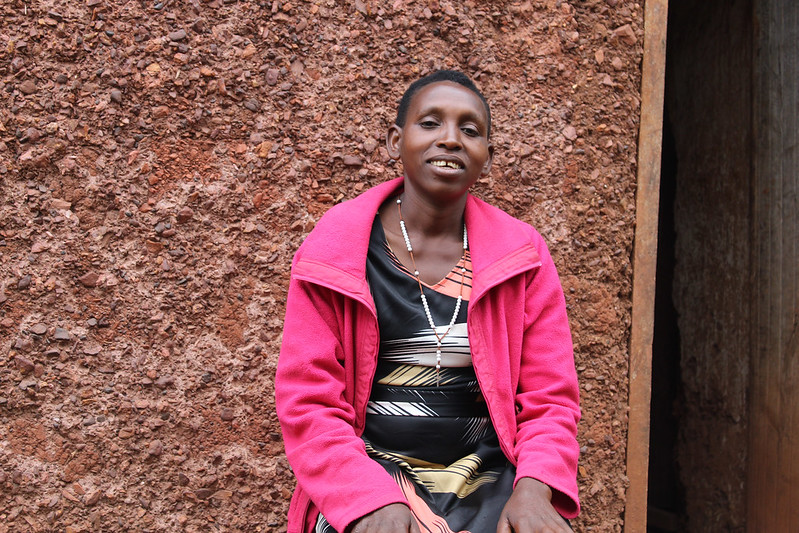
According to 2021 Burundi national data, mothers living with HIV infect at least 9 percent of their newborns within the first two months of life. This figure goes up to 16 percent in the first two years of life. Some PMTCT challenges in Burundi include limited antenatal care (ANC) services for pregnant women, and low coverage of HIV testing in pregnant women at non-PEPFAR-supported health facilities. Other challenges are no integration of services between HIV clinics and ANC clinics, late HIV testing in HIV-exposed infants, and a lack of services for mothers to receive care with their infants.
As part of Burundi’s national strategy to eliminate HIV transmission from mothers to their children, the RISE project – a Jhpiego-led consortium in the fight against HIV/AIDS supported by the U.S. President’s Emergency Plan for AIDS Relief (PEPFAR), through the U.S. Agency for International Development (USAID) – launched the mentor mother program in January with a training exercise. The program pairs HIV-positive women who had babies after their diagnosis (mentor mothers) with other women in similar situations. The mentor mothers are counseled by nurses and midwives from PMTCT facilities to support pregnant and breastfeeding women with treatment adherence, continuity of treatment, monitoring viral load count, and early infant HIV diagnosis.
Habarugira remembers how scared and lonely she felt after learning about her HIV-positive status during her pregnancy. “My partner abandoned me when our baby was only two months old. It was tough, and I was angry, but I resolved that I did not want another woman living with HIV going through the experience of being abandoned,” she said.
Project launch preparations began in November 2021. As a first step, health care workers from eight ICAP-supported sites in Burundi’s northern region identified 24 women living with HIV. The women, including Habarugira, were trained in community-based monitoring and support of mother-infant pairs in January 2022.
After the training, health facility workers invited all HIV-positive pregnant and breastfeeding women in the PMTCT program for a presentation on the mentor mother program. The women learned about the program’s benefits at the presentation, including program structure and activities. Health care workers also introduced the selected mentor mothers to the women.
By the end of January 2022, health care workers enrolled 225 out of 333 pregnant and breastfeeding women living with HIV in the mentor mother program at the eight sites.
The mentor mother program also leads activities that engage and involve male partners of women living with HIV as a critical step in preventing HIV transmission from mother to child. RISE supports health care workers in educating male partners on the importance of PMTCT services and their involvement in the birth of a healthy, HIV-negative child. In February 2022, RISE hosted a meeting for 116 partners of pregnant and breastfeeding women enrolled in the PMTCT program in three health facilities.
“I didn’t know about the PMTCT services offered for pregnant women and the benefits for my child,” said Nsabiyaremye Pacifique, a father of seven HIV-negative children, after being introduced to the program. Habarugira has been supporting the couple with their eighth pregnancy. According to Marcianne Kkurikiye, Pacifique’s wife, Pacifique has been meticulous about monitoring her ART treatment since that meeting in February.
Based on the successful launch of the mentor mother program at the eight PMTCT facilities, the RISE project will extend the program to 15 other facilities in Burundi’s central region by September 2022.
“Thanks to the mentor mother program, I have gained knowledge, understanding, and skills to support women and their babies throughout pregnancy and breastfeeding,” Habarugira said. “I know the support I now give to families will contribute to an HIV-free generation.”
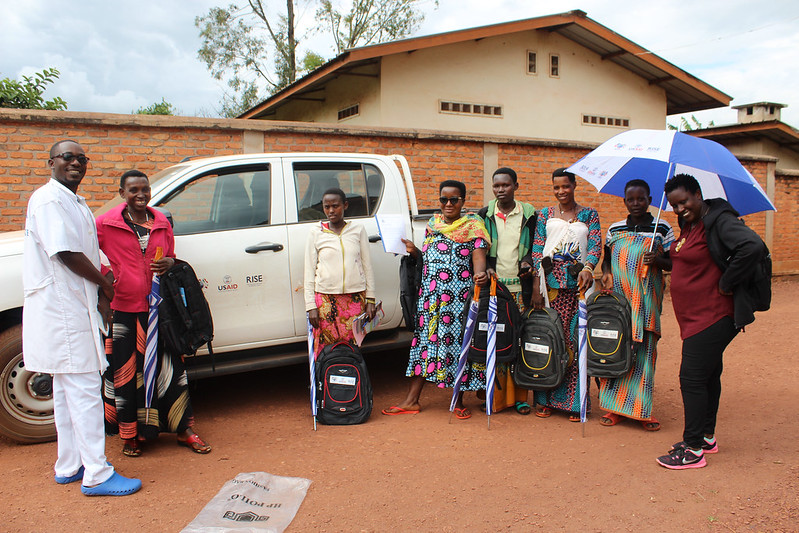
The Reaching Impact, Saturation, and Epidemic Control (RISE) project is supported by the U.S. President’s Emergency Plan for AIDS Relief (PEPFAR), through the U.S. Agency for International Development (USAID). In Burundi, ICAP is involved in the fight against HIV/AIDS through the RISE project consortium led by Jhpiego. One of the objectives of the RISE project is to strengthen treatment adherence for adults, pregnant women, adolescents, and children, through patient-centered approaches and differentiated service delivery.
About ICAP
A major global health organization that has been improving public health in countries around the world for nearly two decades, ICAP works to transform the health of populations through innovation, science, and global collaboration. Based at Columbia Mailman School of Public Health, ICAP has projects in more than 30 countries and is working side-by-side with ministries of health and local governmental, non-governmental, academic, and community partners to confront some of the world’s greatest health challenges. Through evidence-informed programs, meaningful research, tailored technical assistance, effective training and education programs, and rigorous surveillance to measure and evaluate the impact of public health interventions, ICAP aims to realize a global vision of healthy people, empowered communities, and thriving societies.


